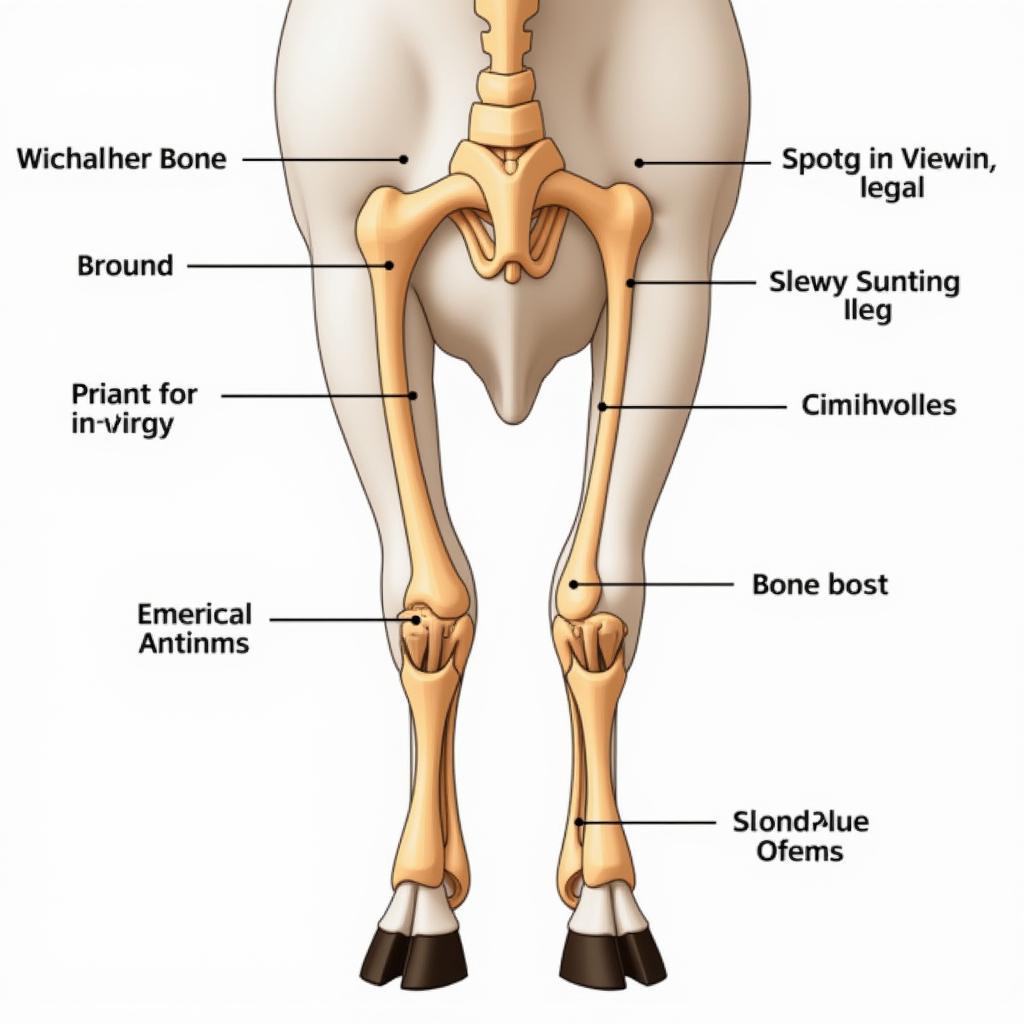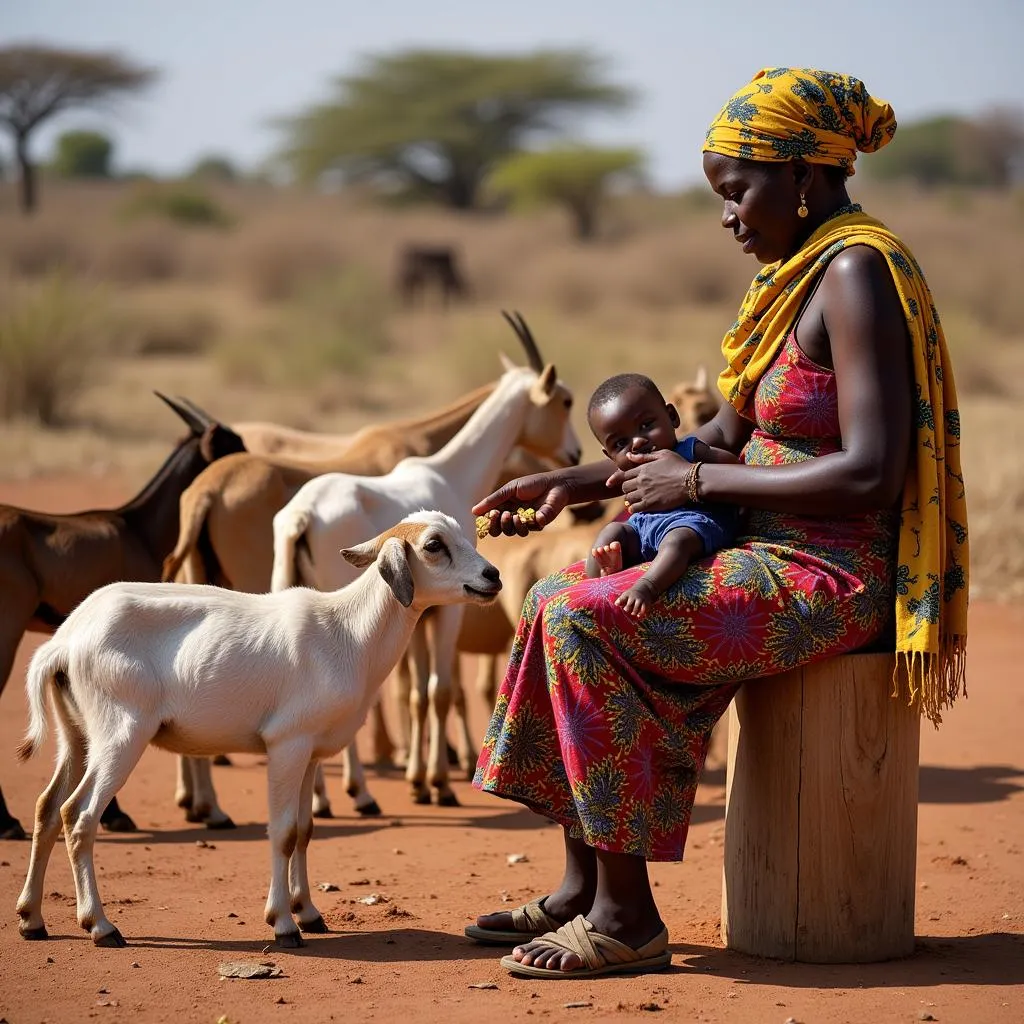African Fat Babies: A Celebration of Healthy Growth and Cultural Significance
African Fat Babies are often seen as a symbol of health, prosperity, and good fortune in many African cultures. This perception goes beyond mere aesthetics and delves into deeply rooted beliefs and traditions surrounding childcare, nutrition, and community values. It’s important to understand the cultural context behind this perspective and avoid applying Western standards of beauty and health to a different cultural lens. Let’s explore the rich tapestry of traditions and beliefs surrounding plump babies in Africa.
The practice of baby massage, common in many African communities, is believed to contribute to a child’s healthy weight gain. You can learn more about it at african baby massage. Traditionally, oils infused with herbs and natural ingredients are used, not only to nourish the skin but also to promote relaxation and bonding between mother and child. This practice is passed down through generations, embodying the importance of touch and nurturing in early childhood development. Families often gather to celebrate the growth and well-being of their children, reinforcing the communal aspect of raising a child in African societies.
The Significance of Plumpness in African Cultures
In many African communities, a plump baby is seen as a sign of good health and a testament to the mother’s ability to provide adequate nourishment. This is particularly true in regions where food scarcity and malnutrition can be prevalent. A well-fed baby symbolizes not only physical health but also the family’s overall well-being and social standing within the community.
This cultural appreciation for plump babies should not be mistaken for promoting obesity. Instead, it emphasizes the importance of ensuring adequate nutrition and care during a child’s formative years. It’s a celebration of life and the resilience of communities facing challenges in providing for their youngest members.
Traditional Childcare Practices and Nutrition
Traditional childcare practices in Africa often prioritize breastfeeding and the introduction of nutrient-rich complementary foods. Grandmothers and other extended family members play a significant role in sharing knowledge about traditional remedies and food preparation techniques. This intergenerational transfer of knowledge ensures the continuation of cultural practices centered around child health and well-being. Check out some traditional african food for children.
 An African family preparing traditional food for their baby
An African family preparing traditional food for their baby
Many traditional African diets incorporate locally sourced ingredients that are packed with essential nutrients. Foods like millet, sorghum, and leafy green vegetables are staples in many communities, providing a balanced diet that supports healthy growth. The emphasis on natural, whole foods is a core component of traditional African nutrition.
Modern Influences and Changing Perspectives
While the traditional view of plump babies remains prevalent in many African communities, modern influences and increasing exposure to Western ideals are gradually shaping perceptions. Access to information about childhood obesity and health risks associated with excessive weight gain is becoming more widespread.
However, it is crucial to approach this topic with cultural sensitivity and avoid imposing Western standards on African traditions. The goal is to promote healthy growth and development, not to stigmatize cultural practices or undermine the importance of adequate nutrition in resource-constrained environments.
 An African mother learning about child nutrition from a healthcare worker
An African mother learning about child nutrition from a healthcare worker
You can explore more on African baby features like the adorable african baby side face. Also, find out more about beneficial products like 100 african shea butter.
Conclusion
African fat babies represent more than just physical appearance; they symbolize health, prosperity, and the continuity of cultural traditions. Understanding the context behind these cultural perceptions is crucial in promoting healthy childcare practices while respecting the rich heritage of African communities. It’s about finding a balance between traditional practices and modern knowledge to ensure the well-being of future generations.
FAQ
- What does a plump baby symbolize in many African cultures? It represents health, prosperity, and the mother’s ability to nourish her child.
- Are traditional African diets nutritious? Yes, they often incorporate nutrient-rich, locally sourced ingredients.
- Are modern influences changing perspectives on baby weight? Yes, increased access to information about childhood obesity is impacting perceptions.
- Why is cultural sensitivity important when discussing this topic? It’s essential to avoid imposing Western standards on African traditions.
- What is the focus of healthy childcare practices in Africa? Ensuring adequate nutrition and care during a child’s formative years.
- How are traditional childcare practices passed down through generations? Primarily through shared knowledge from grandmothers and other extended family members.
- What is the role of breastfeeding in African childcare? Breastfeeding is highly prioritized and considered a cornerstone of infant nutrition.
Are you curious about training your African Grey parrot? Learn more about african grey treats for training.
For further reading, explore our articles on other related topics.
If you need assistance, please contact us at Phone Number: +255768904061, Email: [email protected] Or visit our address: Mbarali DC Mawindi, Kangaga, Tanzania. We have a 24/7 customer service team.


